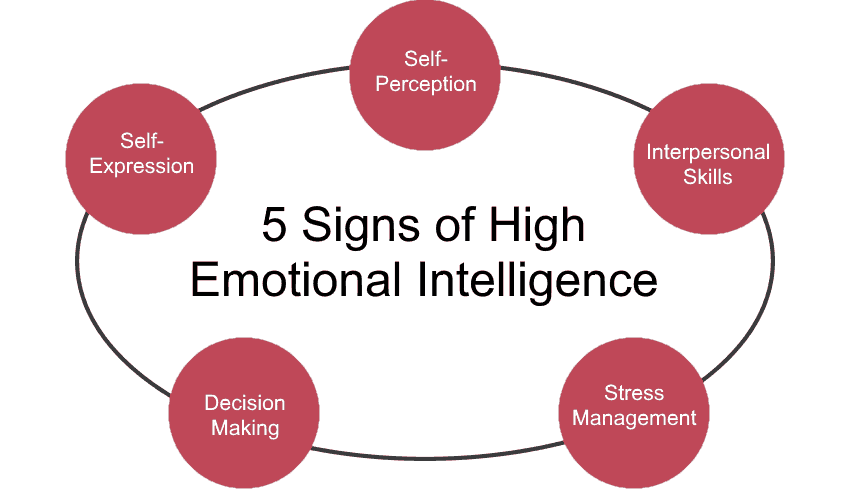What is your EQ?
The Importance of Emotional Intelligence

Emotional intelligence is the ability to be aware of one’s emotions as well as control and express them in a positive manner. Interpersonal communication is a skill that I believe continues to develop over time and experience in life. Working with a multitude of different people, will surely help you grow. Emotional intelligence is the key to being successful in both your personal and professional life.
This blog is more of a research topic than anything else. Throughout the years, I have struggled identifying the importance of developing emotional intelligence, but at the age of 56, I have finally started to understand the importance of being strong in this area.
Empathy
Paying attention to those around you, as well as having general empathy for others helps promote a healthy EQ (Emotional Quotient). Empathy is the ability to feel and relate to other people’s life experiences and struggles as well as joys and accomplishments. It’s less about ME and more about others. But it also requires us to be sensitive to our own emotions and gauge where we are in any given situation.
Listening and understanding other people takes time and effort to accomplish. Also being aware of the why behind what someone might be feeling is key.
Seeing other people’s perspectives will also help us grow in emotional intelligence and strengthen our bond with those we work with, care about, or just want to be around. Components that make up good EQ are being able to be self-aware, in other words, being aware of how we are feeling in any given situation and the ability to share our thoughts with others in a healthy, balanced, and constructive way without allowing our emotions to override the moment.
It takes practice, being emotionally intelligent requires us to be in touch with who we are while still respecting others in our mutual space. It so important to be aware of those around us and get a handle on who they are, what they stand for, and how they express themselves. We can adjust our behavior, express our needs, and blend in with the culture while still being ourselves. This not only builds our self-esteem but also earns respect from others.
Key Components
I consider myself a good reader of body language and this is another key ingredient in emotional intelligence. Being aware of our body language and the body language of those around us is crucial to understanding what someone is feeling.
“Researchers suggest that there are four different levels of emotional intelligence including emotional perception, the ability to reason using emotions, the ability to understand emotions, and the ability to manage emotions.” What Is Emotional Intelligence? (verywellmind.com)
Perceiving emotions: The first step in understanding emotions is to perceive them accurately. In many cases, this might involve understanding nonverbal signals such as body language and facial expressions.
Reasoning with emotions: The next step involves using emotions to promote thinking and cognitive activity. Emotions help prioritize what we pay attention and react to; we respond emotionally to things that garner our attention.
Understanding emotions: The emotions that we perceive can carry a wide variety of meanings. If someone is expressing angry emotions, the observer must interpret the cause of the person's anger and what it could mean. For example, if your boss is acting angry, it might mean that they are dissatisfied with your work, or it could be because they got a speeding ticket on their way to work that morning or that they've been fighting with their partner.
Managing emotions: The ability to manage emotions effectively is a crucial part of emotional intelligence and the highest level. Regulating emotions and responding appropriately as well as responding to the emotions of others are all important aspects of emotional management.
Timing
Timing is also an important factor in utilizing higher emotional intelligence, understanding when to express yourself, is just as important on how you express yourself. If you need to confront someone about a topic, then it is best to wait and think it over and have a good understanding and plan on how you are going to handle it. I have never really liked conflict, but often times conflict is not necessary, but instead simply apply your emotional intelligence to a situation, in order to have the best outcome.
Most importantly understand who you are and do not be afraid of addressing sensitive topics as they arise, this is how we grow our EQ. Growing emotionally and learning how to control our emotions is a rewarding experience and will help us overcome tremendous obstacles in our lifetime. Above all, always follow the golden rule, treat others as you would like to be treated and you will surely find success, good relationships, and respect. Working on our emotional intelligence, is a great way to make the world a better place.
About the Author

Rochelle Arnold graduated from RHEMA Bible School and is the Founder of Change the World Ministries. Her desire is to impact the culture for Christ through sound teaching and the fine arts. She is also a full-time paralegal.
Author of Rags or Robes: Finding Your Identity in Christ & SOJOURNERS: In a Strange Land available on Amazon